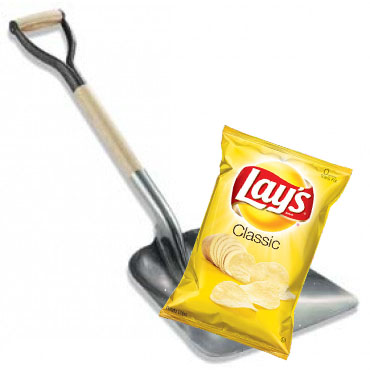 Top Class Action Lawsuits
Top Class Action Lawsuits
Is Groupon discriminating? Someone thinks so. Andrew Huzar has filed a proposed discrimination class action lawsuit, alleging the discount promotion website discriminates against people with disabilities by not offering tickets for accessible seating at events. Further, the allegations state that Groupon does not provide booking options for disability-accessible hotel rooms. Hmm. Not good.
FYI – The lawsuit seeks to represent two nationwide classes, specifically classes of customers made up of those who were not successful in their attempts to either 1) buy tickets to events or 2) find disability appropriate travel accommodations through the Groupon website. Huzar states in his complaint that he has been unsuccessful in securing both tickets and accommodations.
According to Groupon lawsuit, in 2015, Huzar allegedly tried to purchase a “Groupon Getaway” deal to the Red Lion Hotel in Harrisburg, Pennsylvania. However he was unable to find any option to book an accessible room through the Groupon site. The complaint states that Hazar emailed Groupon about the likelihood of booking a wheelchair-accessible room with the offer, however the response he received allegedly stated, “I’m sorry, unfortunately handicap-accessible rooms are not available.”
“Since July 30, 2015, Mr. Huzar has been deterred from attempting to purchase accessible hotel rooms and Groupon Getaways from defendant as he knows such an attempt would merely be a futile gesture,” the complaint states. “Mr. Huzar continues to desire to purchase hotel rooms and Groupon Getaways from defendant, but fears that he will experience serious difficulty doing so as a result of the complete lack of accessible options.”
With respect to purchasing tickets for events, the complaint notes that in the summer of 2016 Huzar received an email advertisement from Groupon about a deal for New York Jets tickets at MetLife Stadium. When he tried to purchase them through Groupon’s website, he discovered the “complete absence” of any accessible-designated tickets in the stadium, he asserts.
“Mr. Huzar has personal knowledge that accessible-designated seating exists at the MetLife Stadium,” the complaint states. “Mr. Huzar is presently aware that if he tried to try to purchase accessible tickets on defendant’s website, he would be unable to do so.”
“Defendant continues to discriminate against … the classes by failing to make reasonable modifications in policies, practices or procedures, when such modifications are necessary to afford persons with disabilities the ability to purchase tickets; and by failing to take such efforts that may be necessary to ensure that no individual with a disability is excluded, denied goods and services, segregated or otherwise treated differently than other individuals,” the complaint states.
Huzar alleges Groupon has violated the 1990 Americans with Disabilities Act, which “prohibits discrimination on the basis of disability in the activities of places of public accommodations.”
The case is Andrew Huzar v. Groupon Inc., case number 1:17-cv-05383, in the U.S. District Court for the Northern District of Illinois.
Top Settlements
It’s not only the brakes that failed– it was Nissan. That’s what a jury found in a recent Nissan SUV had a defective braking system lawsuit.
A $25 million settlement was awarded to surviving family who suffered the loss of their mother and her two daughters who were killed in 2012 when a Nissan Infiniti QX56 SUV crashed into the family’s minivan in a Hollywood intersection.
Nissan faced claims from both the driver of the SUV, Solomon Mathenge, and the family of Saida Mendez, and her two children, Hilda and Stephanie Cruz. The jury returned a verdict finding the fatal accident was 100 percent attributable to the defective Nissan braking system in the Infiniti SUV. Further, the jury found that Nissan had been negligent in not recalling the vehicle.
Although Mathenge was charged with manslaughter after the crash, the charges were dropped following the Nissan defective brake system class action lawsuit filed against Nissan. That class action alleged the software braking system in certain of Nissan’s vehicles was prone to sudden failure, and inspection of Mathenge’s QX56 revealed it had suffered that very same software error, according to the plaintiffs’ trial brief.
The trial consolidated the claims made by the deceased children’s father, Hilario Cruz, the deceased mother’s surviving daughter, Araceli Mendez, and her mother, Juana de la Cruz Bernardino, with Mathenge’s claims.
The jury awarded Hilario Cruz $14 million in non-economic damages for the deaths of his daughters, and $7 million to Araceli Mendez for the loss of her mother and a further $431,000 for the loss financial support, gifts and household services she would have received from her mother had she not been killed. Mathenge was awarded $3.5 million in damages.
The award was significantly less than the amount plaintiffs’ attorneys were seeking. They had asked the jury to find Nissan guilty of malice, as the company was aware of the defect and its danger, but refused to recall the affected vehicles. However, the jury found Nissan did not act with malice.
The case is Cruz v. Nissan North America, et al., case number BC493949, in the Superior Court of California for Los Angeles County.
It’s a healthcare fraud whopper… but a stopper? Possibly. $280M should provide incentive to stop promoting off-label drugs. It likely will be for Celgene, which has agreed to pay $280 million to settle allegations made by a California Whistleblower under the False Claims Act that the biotech company promoted off-label uses for two of its cancer drugs.
The lawsuit, brought by a former sales rep for Celgene, Beverly Brown, alleged the company promoted two bone cancer drugs, Thalomid and Revlimid, for other cancers they weren’t approved to treat. As part of the promotion, Celgene paid kickbacks to physicians to promote the drugs’ off-label use. The lawsuit also alleged these actions were in violation of laws in no less than 28 states and the District of Columbia, in addition to False Claims Act.
Under the terms of the agreement, the United States will receive the majority of the settlement, $259.3 million, with $20.7 going to 28 states and the District of Columbia. California, where the suit was filed, will receive $4.7 million, the largest amount of any state.
According to documents from the Celgene whistleblower case, which was initially filed in 2010, and Celgene had a massive off-label promotion scheme in place for Thalomid and Revlimid. The documents, which were unsealed in 2014, further reveal that Brown alleged that the two drugs were only narrowly approved to treat multiple myeloma, a form of cancer that affects the bone marrow, however they were routinely marketed to treat other forms of cancer, including breast cancer and leukemia.
According to Brown, the off-label use of these drugs was paid for through government programs which, she contended, Celgene marketed by paying doctors speaker fees and other charitable donations in exchange for promoting Thalomid and Revlimid.
The case is United States of America et al. v. Celgene Corporation, case number 2:10-cv-03165 in the U.S. District Court for the Central District of California.
Ok – That’s a wrap for this week. See you at the bar!


